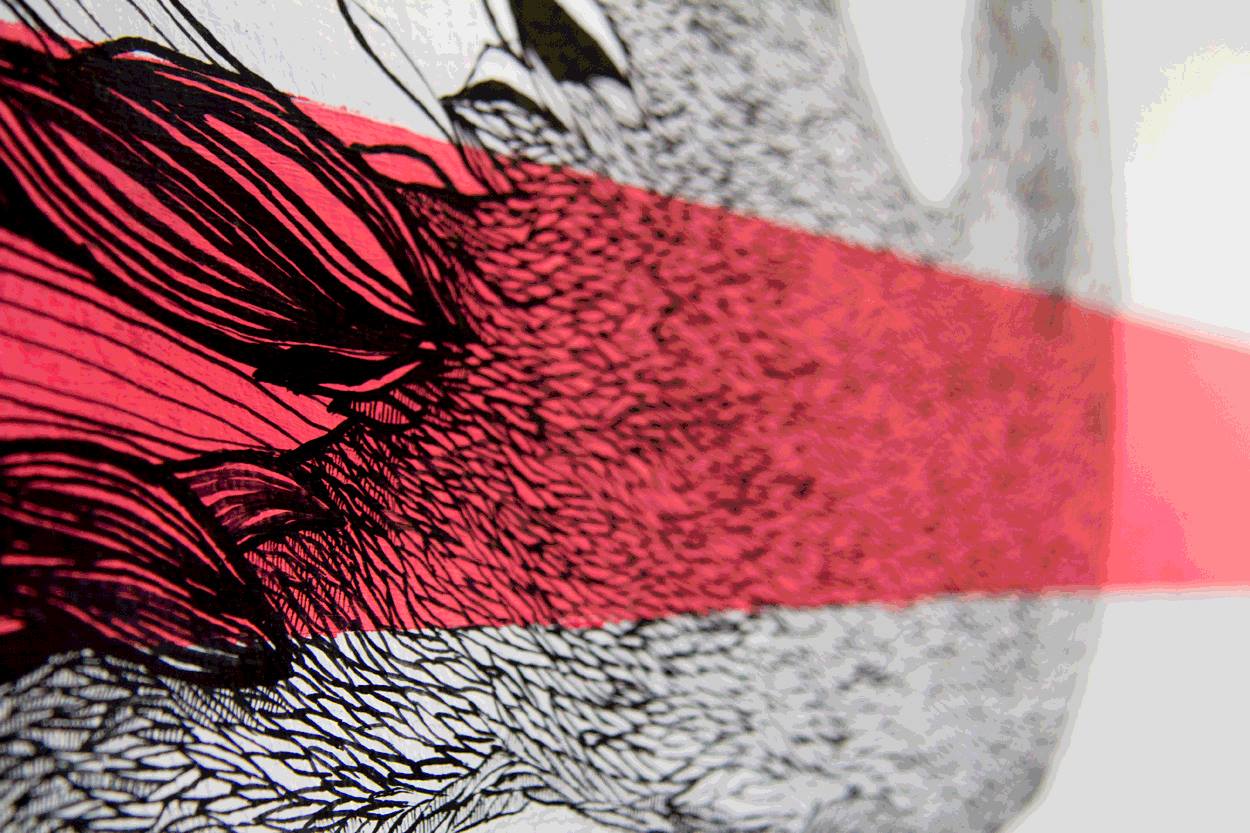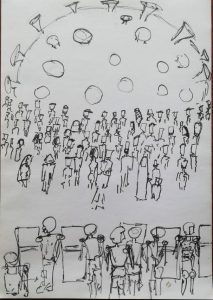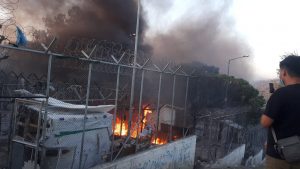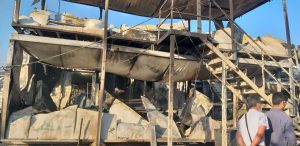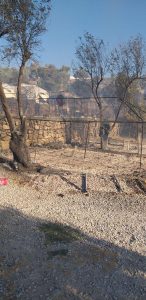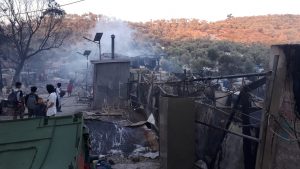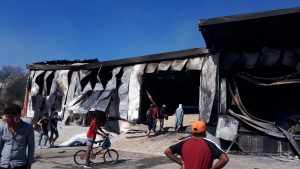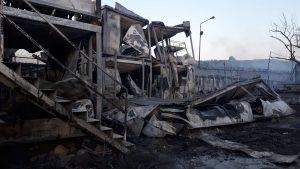In Petrou Ralli migrant detention centre, Athens, prisoners have always faced bad living conditions, psychological violence, substandard medical care, as self-organised groups supporting prisoner women have documented. Two weeks ago, after cops sexually attacked prisoner women for the last time, the women prisoners who were in Petrou Ralli were transferred to Amygdaleza migrant dentention centre. Since then, the cops have had free rein to increase the level of violence and torture on the men. Solidarity is needed urgently!
Communication from a prisoner man from Petrou Ralli to the Initiative of Solidarians for Petrou Ralli.
Good afternoon. Today is August 23, 2020. I am a prisoner who has currently been on the third floor of Petrou Ralli Allodapon for fourteen months. I want to talk about a person, a prisoner—as they say he is a prisoner, there’s no prisoner because of papers. He was with us for about three months with a serious illness: hepatitis and some pretty large round things in his throat, I don’t know the medical word for it. But in horrible condition. From the morning until the evening he’d be crying, from the morning until the evening we’d be fighting with the police, with the nurse, with the doctor, to send him to hospital. A thousand times they took him to the hospital, for nothing, they just took him for a ride and they came back. Finally on the night of August 17, 2020 we managed (by fighting with the police, with punches and kicks both from them and from us) to have him sent to hospital, and they kept him in Evangelismos, which was on duty on that day. Luckily, there were some people outside that we know and we called them and they did something to keep him in hospital.
This person in his horrible state… The night that we made them send him, he could barely breathe, and they would say, “It’s nothing, he took drugs, he’ll be fine.” And every time they went and came back, the cops would tell us, “It’s not the illness he has that almost killed him, what almost killed him were the psychiatric drugs he’s taken.” This is another very big issue that we have on the third floor as prisoners with serious illnesses. We have no psychiatrist. We have one doctor, I don’t know where they found her and they brought her here, she is the pathologist, she is the psychiatrist, she is the surgeon, she is everything, and she’s nothing. As a prisoner, I say that this woman is nothing. And she gives us these drugs… Luckily, I’m not on psychiatric drugs, but the rest of the guys… Because here there’s not even a tv, not even a radio, not even a thing. And how long can you spend talking, however much you talk it will be over eventually. You need drugs to sleep and relax. There’s bars and iron everywhere.
They give such heavy drugs, psychiatric drugs, that everyone’s belly is bloated and they have some lumps one in his neck, one in his belly, one in his back, everyone has developed this thing. And the person who was in hospital, thankfully, with the help of some people we know from outside, who are humans not just in the word, they’re humans in their soul; they went there, they saw him, they managed—despite the difficulties with the coronavirus measures—they managed to see him and then they told us the shitty state they found him in: no shoes, no flip flops, not one pair of boxers, nothing, in his shitty state. They brought him things, they helped him. Everything they could do, everything in their power, they did it, both the doctor and the people we know. The doctor, not the doctor from Allodapon, the one from outside. They’ve helped him a lot. And especially us in here, as well, since before, when in the building next to us there were girl prisoners. Now the girls left more or less twenty days ago. Things here have got extremely hard. Because the girls who were here had people on the outside, various organisations were watching, and they themselves would fight for the food, for these things, and we’re always saying, “Girls, you took care of the men”, things were lighter. Since the girls left—and why did they leave? due to sexual harassment that cops had done to women—and they have moved from there, the people who were accused of this situation I told you about sent them away so that they’d be lost. And ever since then it’s been tougher. And our food, I give you my word, to whoever hears this message, not even a pig can eat this food. Bread mixed with their hands and in open crates, they fill them with trash, the bread and food that they bring us. And what kind of food? Every day now it’s rice-spaghetti-rice-spaghetti-rice-spaghetti, every day.
We have a big problem with hospitals, with doctors, we have some people here with serious illness, they’ve brought a prisoner next to us these two weeks, he’s alone, today he made a decision to set fire, to sew his mouth shut, to do something. He screams, he says “I do have a residence permit, why are they keeping me locked up?” and they’ve stuffed him with all these psychiatric drugs, […], I don’t know, they want to turn him into a zombie. I want whoever hears this message to keep an eye on us, we’re screaming to you, sos, help, please help.
In the end, now we don’t know what this person’s doing. I’ll manage to see him and talk to him and I’ll say the rest of it better. We as people here, we have no right as humans. What the cops write on paper—they’ve written our rights on the door—none of it applies to us. Nothing applies to us. Our windows are torn, they’re broken. All we see is iron—bars and iron. There’s nothing else.
This.
